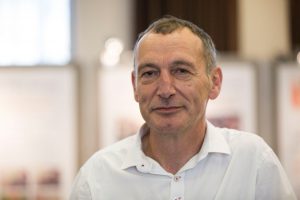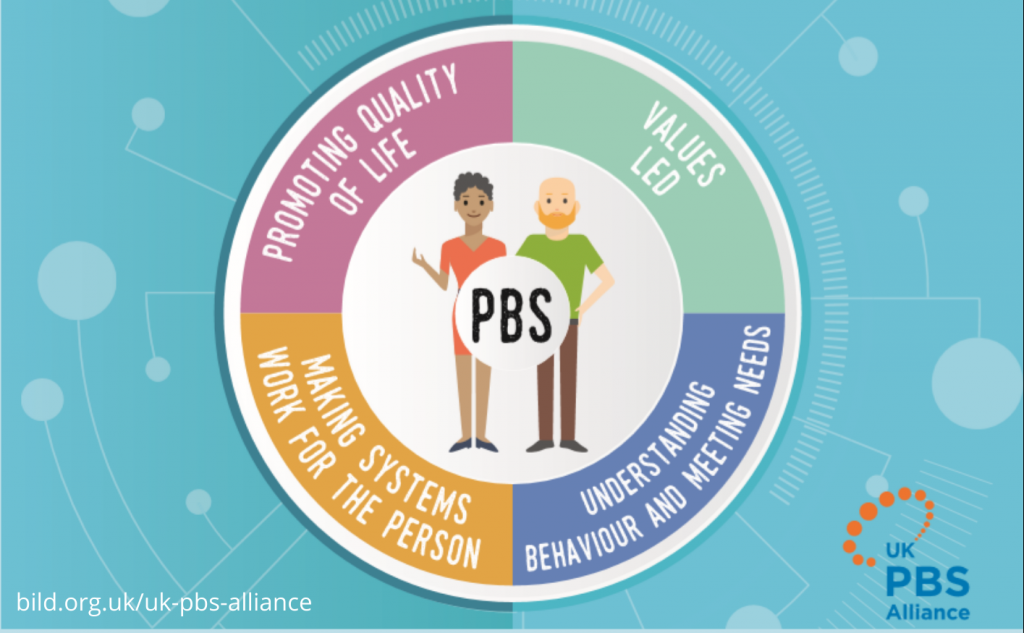NEWS
All the latest news and views from Bild.
7 June 2021
Professor Edwin Jones appointed as Positive Behaviour Support Strategic Lead at Bild
 We are delighted to announce that Professor Edwin Jones joined the Bild team in April 2021 to lead our exciting programme of work in Positive Behaviour Support (PBS).
We are delighted to announce that Professor Edwin Jones joined the Bild team in April 2021 to lead our exciting programme of work in Positive Behaviour Support (PBS).
Positive Behaviour Support is a values based framework of support. It’s about working in partnership with people, treating individuals with dignity and respect, and enabling the people we work alongside to live the lives they choose. PBS puts individuals at the centre of decision making.
Professor Jones has been one of the pioneers at the forefront of developing and establishing the positive behaviour support framework in the UK and internationally.
Prior to joining Bild, Professor Jones was Service Improvement and Research Lead, in the Mental Health and Learning Disabilities Delivery Unit at Swansea Bay University Health Board, where he was closely involved in service improvement and training and policy development focusing on Positive Behavioural Support. Edwin is a visiting professor at the University of South Wales
Professor Jones has been working with Bild to develop our new PBS BTEC qualifications.
We caught up with Edwin to find out more about his love for PBS and social justice, what he’s going to be working on at Bild, and the impact he hopes to achieve in his new role.
In your professional work, what are you most passionate about and why?
I have always been passionate about social justice. I was brought up aware of the need for everyone to be treated well. I’ve always thought that we should help people and that we all need help.
When I was 18, I started working at homeless shelters where I met a great variety of people, many of whom had additional needs such as learning disabilities, mental health problems and people who had experienced domestic abuse, other traumas and some had problems with drugs and alcohol. This experience showed me how trauma impacts people, and I’ve learned so much since those days about the need for trauma-informed care and support.
I went on to work for Shelter Cymru and later became housing coordinator for a charity providing supported living services in small scale ordinary homes in the community for people with learning disabilities. It was here that I recognised that the support that individuals with learning disabilities were receiving was a problem – change was needed. I quickly learned the five service accomplishments and realised that good support was all about participation, people being present, in the community, learning new skills and treating people with respect.
Whilst working for the charity, I met Professor Kathy Lowe, who was carrying out research about Active Support. I found the concept of Active Support and Kathy’s research really interesting, so I applied for the research post on the project, and she supervised me to complete my PhD in Active Support.
Some years later, whilst working at the Welsh Centre for Learning Disabilities, a PBS job came up with the NHS, and I thought ‘that’s what I want to do, it makes sense to me and it will bring all of this together’. So I moved to the NHS, and that’s where I’ve been based up until now, working on all these issues around PBS and Active Support.
Why do you think PBS is so important for helping people?
It goes back to when I was working at the housing charity, and the recognition that it was the support that was the problem. When PBS came along, it ticked so many of my boxes, particularly because I got the idea of it being values based.
Secondly, PBS provided a framework. It was very under developed then, and really it was the first time that I came across behavioural science.
The idea that behaviour is about communication just made eminent sense to me. I still very firmly believe that, when done well, it’s very good.

What are you most looking forward to about working with Bild? What are you working on and what do you hope to have impact in?
Over the years I’ve increasingly felt like a part of Bild, so I’m pleased to finally be fully part of the team. Since I’ve met and worked alongside colleagues at Bild, I recognised that I wanted to work here. I’m very impressed by the amount of work that Bild does, and feel we have very similar values and agendas.
The things I want to achieve are essentially the same as what I have wanted to achieve for a long time. I want to understand PBS better for myself and explain it better to other people. I want to help develop PBS further because it’s constantly evolving.
I’m very interested in issues around making PBS culturally sensitive both to all the different communities in the UK and internationally working with colleagues in Spain and New Zealand, for example. My first degree was in social anthropology so I’ve always been interested in cultural difference and cultural similarity.
As the strategic lead in PBS for Bild, my work is mainly around developing PBS strategically working in close collaboration with others because I know we have a lot of talented PBS practitioners and experts by experience.
One of the things I think is really important is work that Sarah Leitch (Director of Development at Bild) and I have been doing with many people in Wales to co-produce the Welsh Reducing Restrictive Practice Framework, which I hope is going to be implemented very soon. I’m doing lots of work to make sure that it is!
I see myself now as continuing to work on the agenda that I’ve wanted to work on – and have worked on – for a long time. I’m really, really pleased to be back in the voluntary sector, because that’s where my heart and soul has always been.
